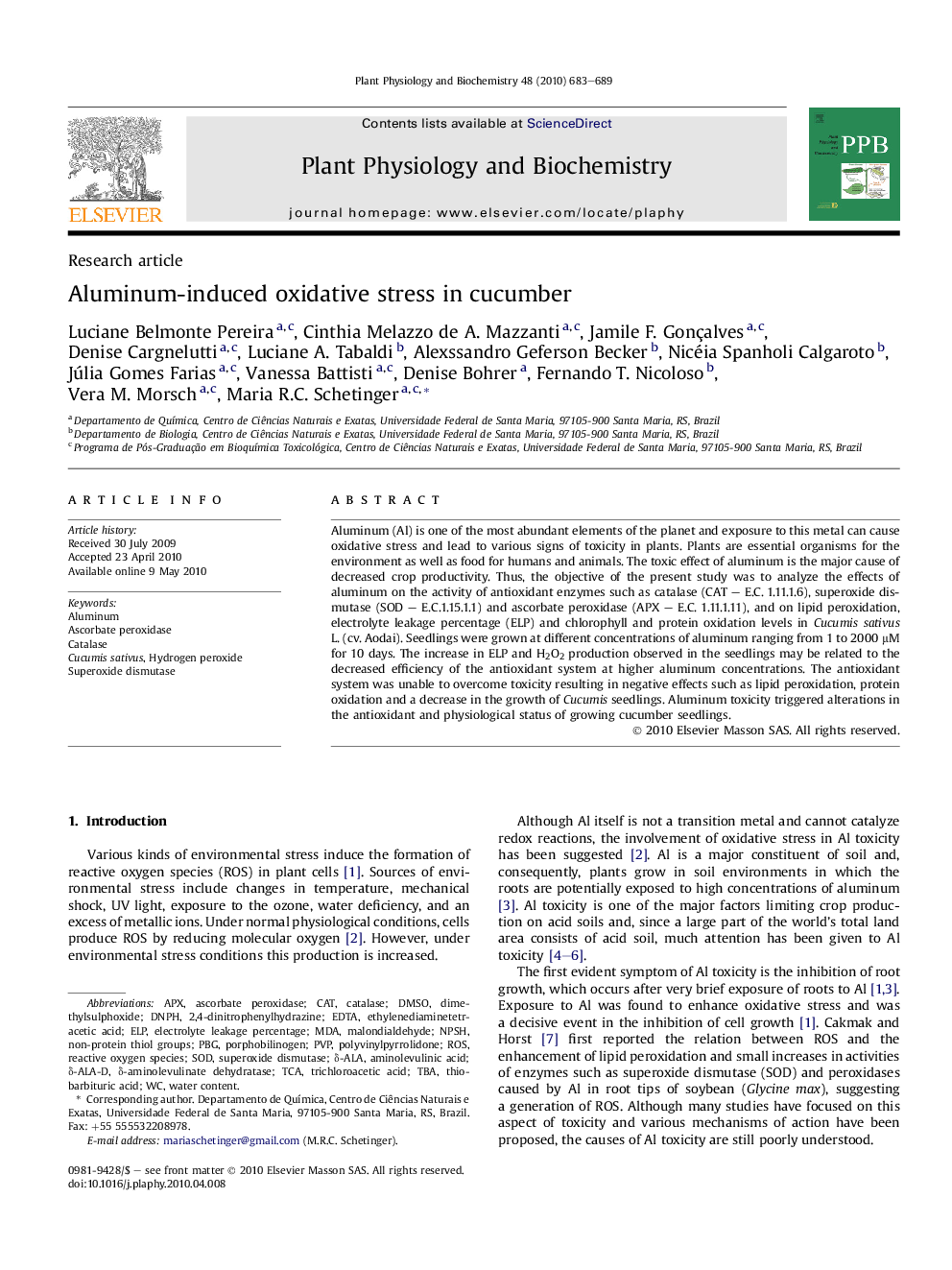| Article ID | Journal | Published Year | Pages | File Type |
|---|---|---|---|---|
| 2015328 | Plant Physiology and Biochemistry | 2010 | 7 Pages |
Aluminum (Al) is one of the most abundant elements of the planet and exposure to this metal can cause oxidative stress and lead to various signs of toxicity in plants. Plants are essential organisms for the environment as well as food for humans and animals. The toxic effect of aluminum is the major cause of decreased crop productivity. Thus, the objective of the present study was to analyze the effects of aluminum on the activity of antioxidant enzymes such as catalase (CAT – E.C. 1.11.1.6), superoxide dismutase (SOD – E.C.1.15.1.1) and ascorbate peroxidase (APX – E.C. 1.11.1.11), and on lipid peroxidation, electrolyte leakage percentage (ELP) and chlorophyll and protein oxidation levels in Cucumis sativus L. (cv. Aodai). Seedlings were grown at different concentrations of aluminum ranging from 1 to 2000 μM for 10 days. The increase in ELP and H2O2 production observed in the seedlings may be related to the decreased efficiency of the antioxidant system at higher aluminum concentrations. The antioxidant system was unable to overcome toxicity resulting in negative effects such as lipid peroxidation, protein oxidation and a decrease in the growth of Cucumis seedlings. Aluminum toxicity triggered alterations in the antioxidant and physiological status of growing cucumber seedlings.
